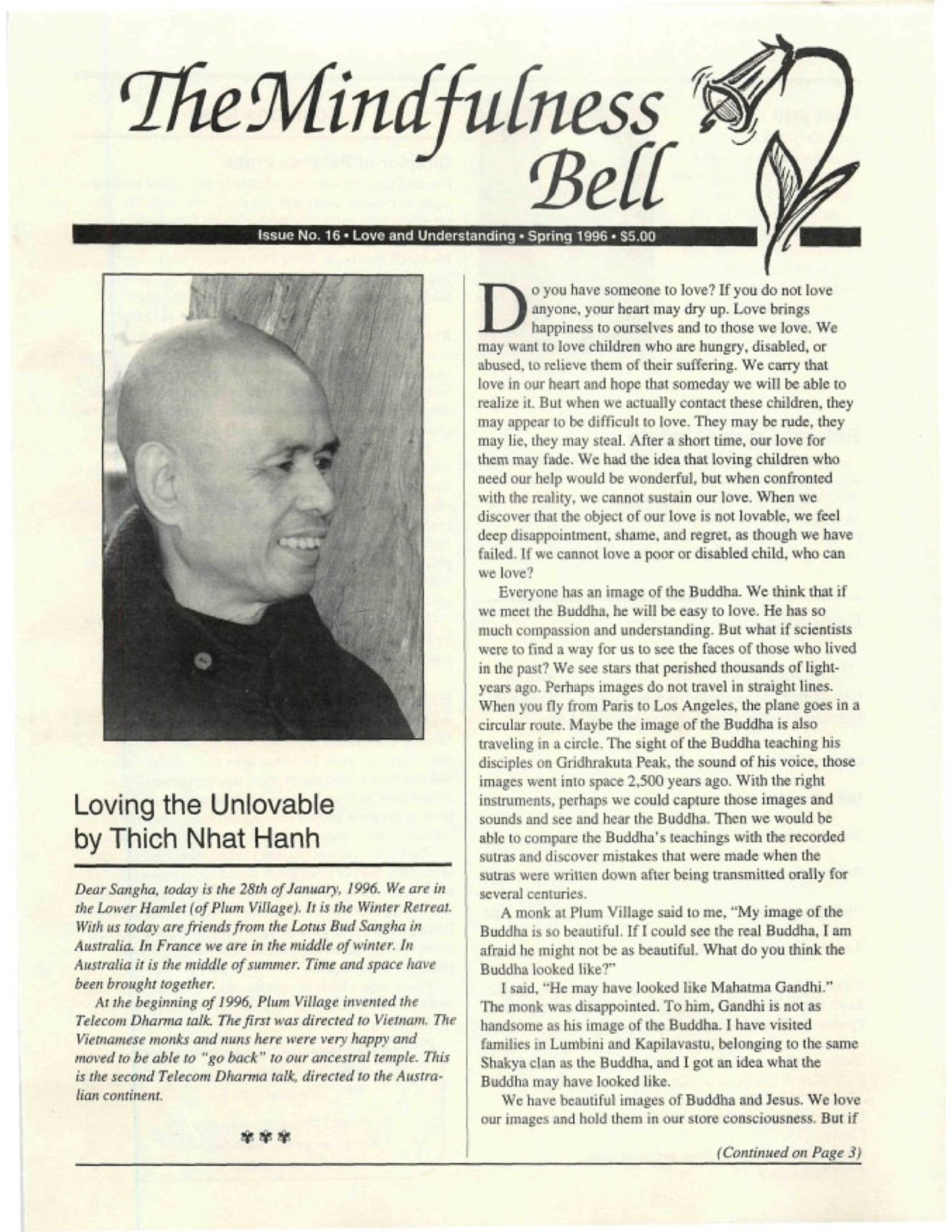By Scott Plous
Last fall, I attended a wonderful mindfulness retreat at the Omega Institute. For four glorious days, 800 people practiced sitting, walking, and smiling together. Thay gave a series of eloquent Dharma talks on how to love one another, and several hundred retreat participants ended up taking the precepts.
Halfway through the retreat, it occurred to me that something important was missing. If the 800 participants at Omega had been a random sample of Americans,
By Scott Plous
Last fall, I attended a wonderful mindfulness retreat at the Omega Institute. For four glorious days, 800 people practiced sitting, walking, and smiling together. Thay gave a series of eloquent Dharma talks on how to love one another, and several hundred retreat participants ended up taking the precepts.
Halfway through the retreat, it occurred to me that something important was missing. If the 800 participants at Omega had been a random sample of Americans, we would have expected to see more than 100 African Americans. Instead, the retreat included only two or three African-American participants.
To me, this suggests that the American Dharma tree is not as strong as it could be. Without African-American practitioners and Dharma teachers, how can peace be reached in the United States? The issue of race is too important to neglect.
Just as a garden is most beautiful when it has many different types of flowers, a Sangha is most beautiful when its members reflect the full richness of society.
Consequently, I would like to ask all American sanghas to make a special effort to welcome the participation of African Americans. As the following quote from Martin Luther King, Jr., shows, African Americans have much to contribute to the practice of mindful living.
All life is interrelated. We are all caught in an inescapable network of mutuality, tied into a single garment of destiny. Whatever affects one directly, affects all indirectly.... Did you ever stop to think that you can't leave for your job in the morning without being dependent on most of the world? You get up in the morning and go to the bathroom and reach over for the sponge, and that's handed to you by a Pacific islander. You reach for a bar of soap, and that's given to you at the hands of a Frenchman. And then you go into the kitchen to drink your coffee for the morning, and that's poured into your cup by a South American. And maybe you want tea: that's poured into your cup by a Chinese. Or maybe you're desirous of having cocoa for breakfast, and that's poured into your cup by a West African. And then you reach over for your toast, and that's given to you at the hands of an English-speaking farmer, not to mention the baker. And before you finish eating breakfast in the morning, you 've depended on more than half of the world. This is the way our universe is structured, this is its interrelated quality. We aren 't going to have peace on earth until we recognize this basic fact of the interrelated structure of all reality.
Martin Luther King, Jr. The Trumpet of Conscience, 1967
If we are to touch peace in these days of racial tension, the involvement of African Americans is imperative. Please strengthen the American Dharma tree by helping it to grow new roots. If each of us makes this issue a priority, I am sure we will succeed.
Scott Pious teaches psychology at Wesleyan University in Middletown, Connecticut.

